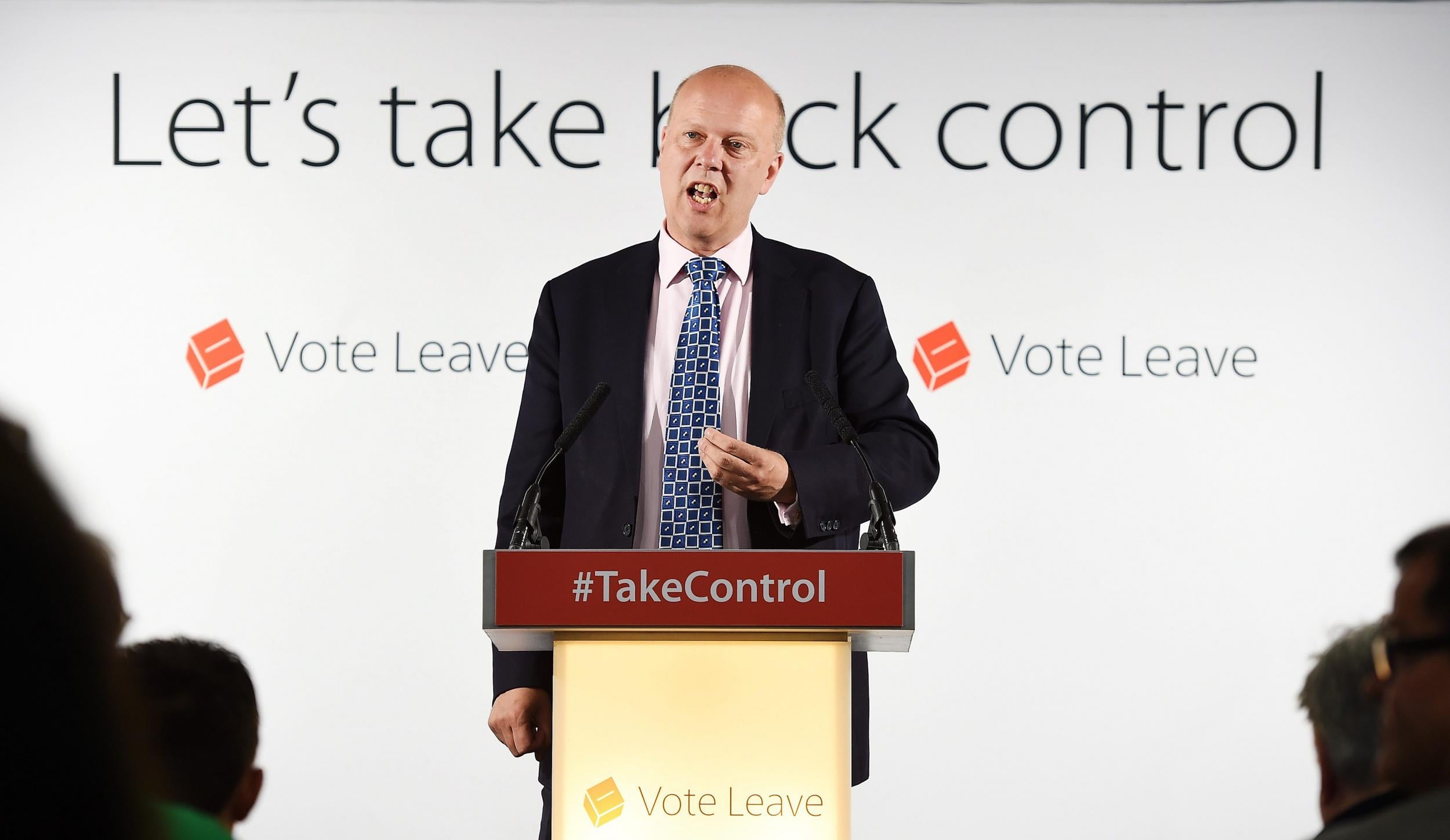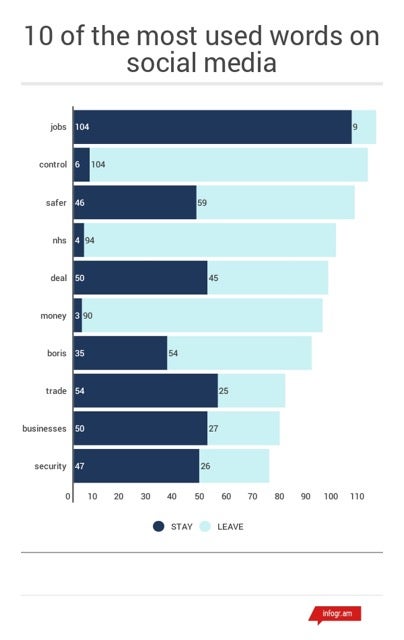EU referendum: The words used most by Brexit and Remain camps - and what they say about the campaigns
'You are not moving the country, attaching it to a boat and dragging it away'

Your support helps us to tell the story
From reproductive rights to climate change to Big Tech, The Independent is on the ground when the story is developing. Whether it's investigating the financials of Elon Musk's pro-Trump PAC or producing our latest documentary, 'The A Word', which shines a light on the American women fighting for reproductive rights, we know how important it is to parse out the facts from the messaging.
At such a critical moment in US history, we need reporters on the ground. Your donation allows us to keep sending journalists to speak to both sides of the story.
The Independent is trusted by Americans across the entire political spectrum. And unlike many other quality news outlets, we choose not to lock Americans out of our reporting and analysis with paywalls. We believe quality journalism should be available to everyone, paid for by those who can afford it.
Your support makes all the difference.The words used most by the Remain and Leave campaigns have been revealed ahead of the EU referendum.
Analysis shows that if the June 23 vote had to be summed up in three words for the Remain campaign, they would be “jobs,” “trade,” and “businesses.” Conversely, for the Leave side, they would be “controlled,” “NHS,” and “money".
The Independent compared the Facebook posts and tweets of the two official EU campaigns between 20 February and 20 April, the first two months after David Cameron announced the date of the referendum.
The results show the Britain Stronger in Europe (Stay) campaign used the word “jobs” 11 times more than those behind Vote Leave (Leave) - which itself used the word “NHS” 23 times more than the opposing campaign.

Even if Britain Stronger in Europe (Stay) outnumbered the Leave Campaign for the use of certain words, the campaign was less active on social media than its opponent.
Stay = 837 tweets and 44 Facebook posts
Leave = 1216 tweets and 64 Facebook posts
What do these results mean?
How many times should a message be repeated before we get it? In advertising lingo, this metric is coined the ‘effective frequency’: the number of times a message must be repeated before the marketer obtains the desired result.
For the Stay and Leave campaigns, the answer is not clear, but one thing is for sure, messages are more effective when repeated.
Dr Simon Usherwood, senior politics lecturer at the University of Surrey, told The Independent that both campaigns were trying to make connections in people's minds.
For instance, he pointed to the fact that the Britain Stronger in Europe campaign tended to use the word 'Europe' instead of EU.
“They are trying to make us say; ‘if we leave the EU we are leaving Europe,’ which is technically not true," he said.
"You are not moving the country, attaching it to a boat and dragging it away.”
He said both sides were trying to appeal to a sense of national identity to suit their interests, adding that each campaign wanted to talk about what was good for Britain and the UK rather than talking about the EU.
“The Remain campaign has focused a lot on the economics benefits," said Dr Usherwood.
"They are making a kind of rational economic argument, saying that jobs depend on this, [that] the state of the economy depends on this.
"Going for the pocket book [economy], I think it’s an obvious kind of example of where a strength lies.
"For the Leave campaign, I think it is much more about emotional arguments, about the politics of the situation, about this very British notion of fairness. That it is somehow not fair that other people should tell us how to run our lives."
Subscribe to Independent Premium to bookmark this article
Want to bookmark your favourite articles and stories to read or reference later? Start your Independent Premium subscription today.
Join our commenting forum
Join thought-provoking conversations, follow other Independent readers and see their replies
Comments